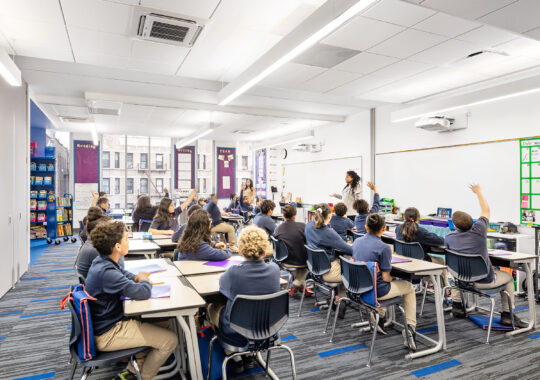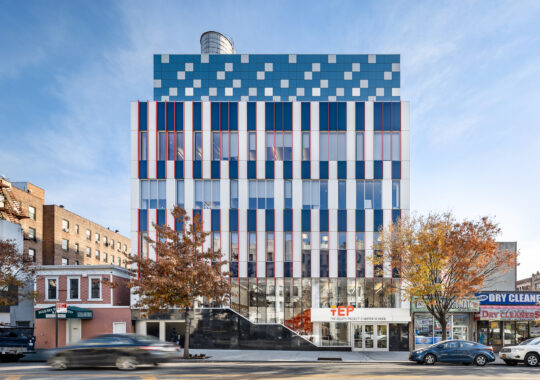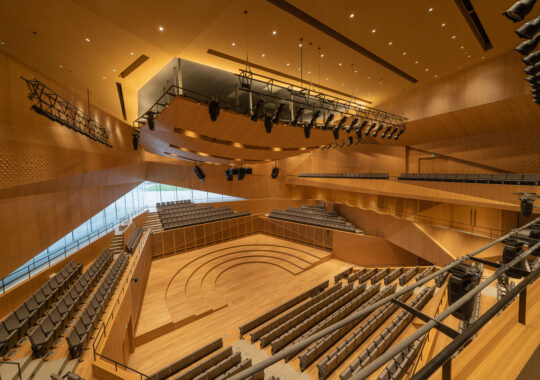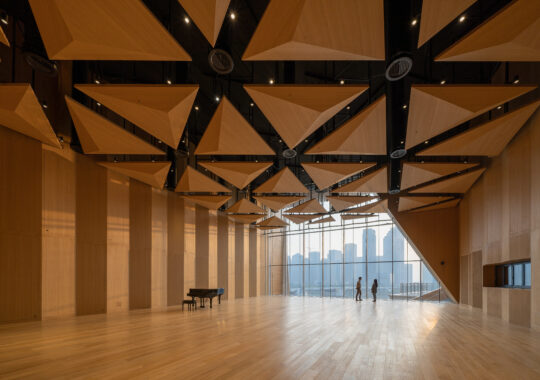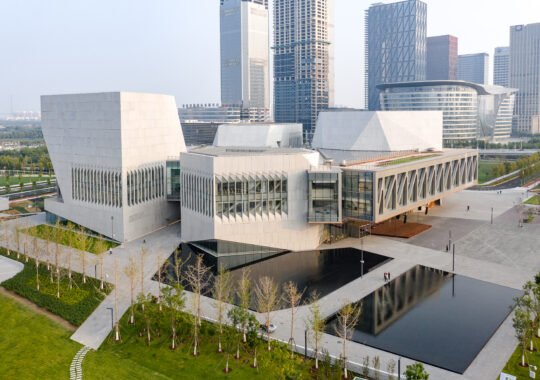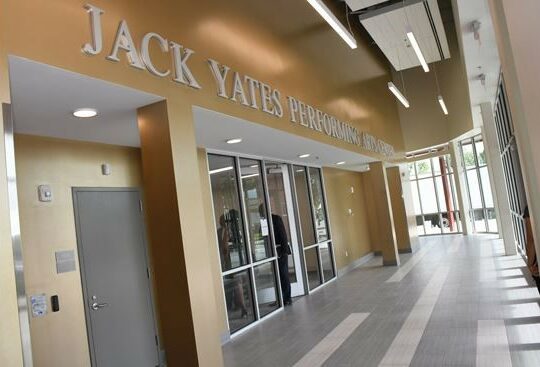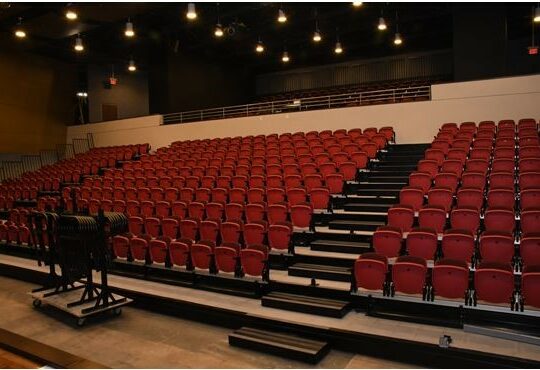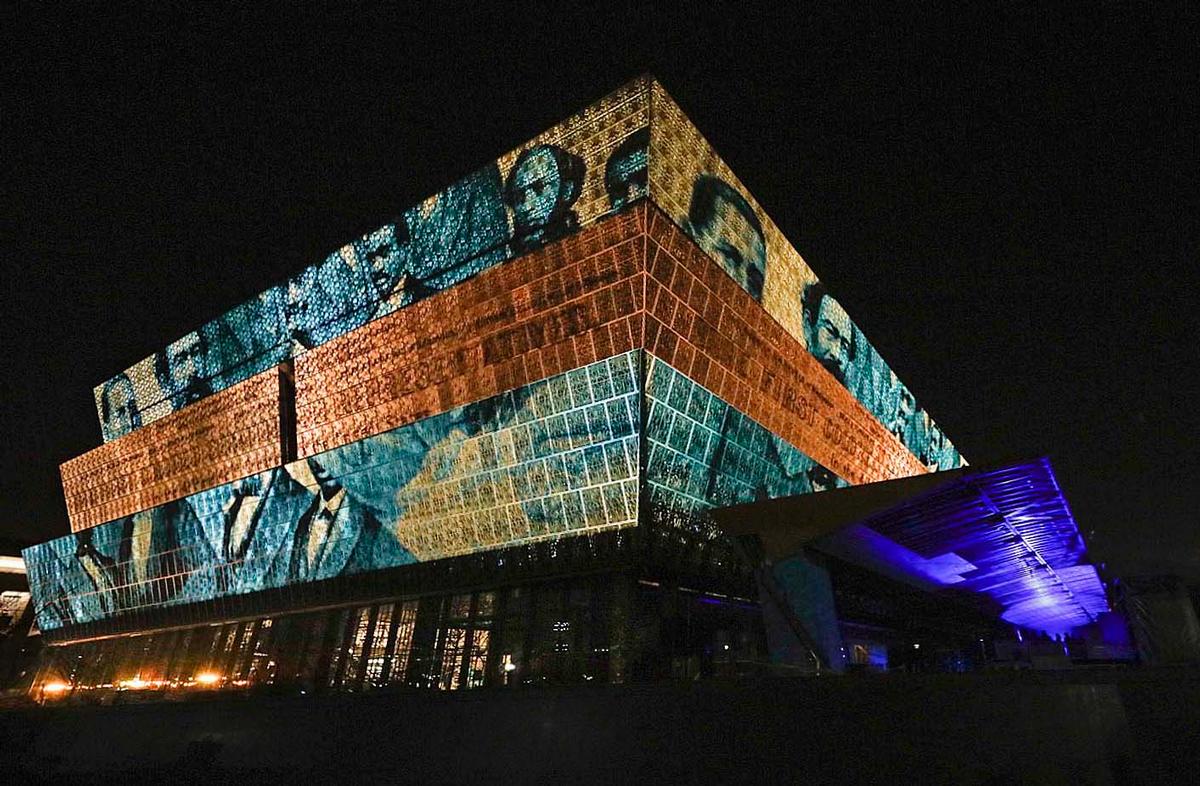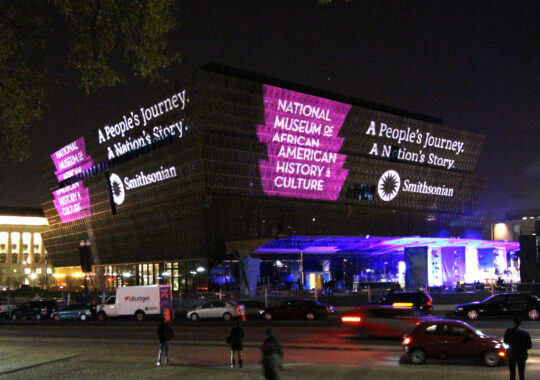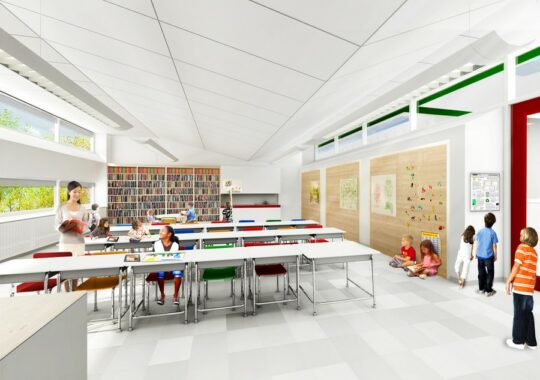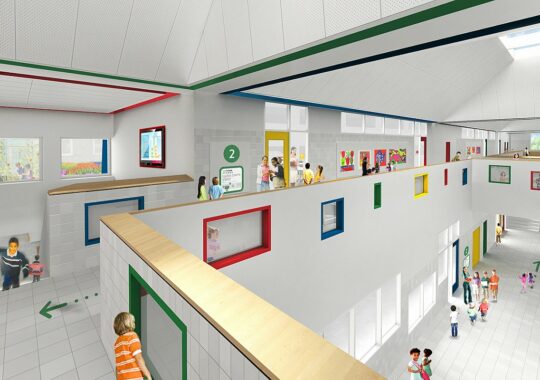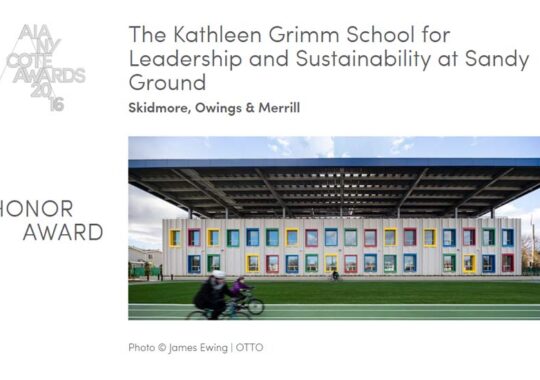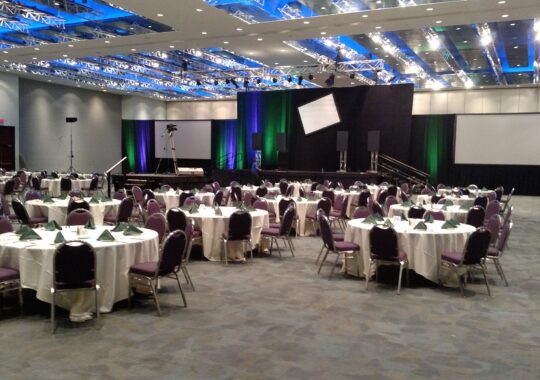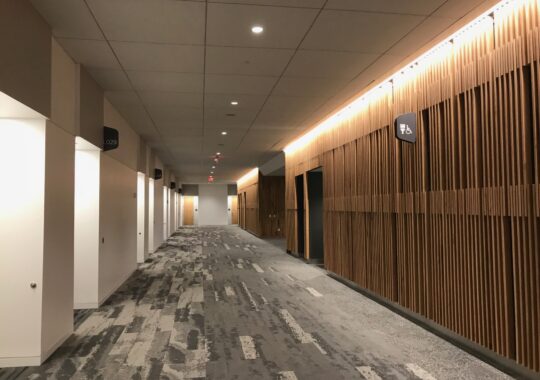In my line of work, I often see theater and performance programs removed from high school designs in the name of budgets and value engineering processes. Even though the Harris Poll cites 93% of the public believes that arts, including theatre, are part of a well-rounded education, the excuses of “we don’t really have a drama program” or “we don’t need anything that sophisticated” are often repeated. The common perception of the benefits of performing arts in high school often looks no further than the performers in the spotlight. There are many benefits to taking part in performance activities including higher SAT scores and academic success for starters, but did you know that these programs often increase confidence in high school students in public speaking and generally presenting ideas? Unfortunately, the number of high school performers who can ‘make performance’ their primary profession is minuscule. Less than 2% of college students who graduate with degrees in drama go on to make their living as professional actors. A percentage that is only slightly better than the 1.6% of NCAA football players that make it to the NFL. However, those children behind the curtain supporting technical theatre operations and hanging out in the dark, have far better prospects.
All areas of the performing arts, from theater to concerts to media, were substantially hurt by the pandemic shutdowns, but the future for events of all types looks very promising. Students who study and participate in the technical aspects of theatre go on to serve the entertainment industries as designers, managers, and technicians. They support not only live theater, media, and movies but also political rallies, sporting events, concerts, documentaries, radio programs, amusement parks, conferences, tradeshows circuses, and museums.
Transferable skills are relevant to a wide variety of careers including architecture, construction, management, computer programming, animation, special effects, and engineering. Within SM&W alone we have consultants and senior leadership even with backgrounds in technical theatre. Technical theatre encompasses the design, construction, and management of props, set pieces, make-up, advertising, and costumes. Students learn about the operation, safety, and programming of lighting and rigging systems. Technical theatre is truly an integrated approach to learning as students must use math, art, geometry, physics, history, electronics, and language skills while at the same time learning to use power tools, paints, materials, audio-video, lighting, and computers.
At SM&W, we often focus on designing theatrical and performing arts systems that incorporate the basic tools which are universal to the performing arts market. The lighting control consoles we select are more limited in scale but share the same operating systems and programming functions as the major shows on Broadway or in Las Vegas. Rigging systems and rigging safety are universal whether it be manual counterweights or motorized. Lighting instrument programming, operation, and maintenance that a student may learn for the senior play can be directly applied to productions in college or as a union stagehand. Sound designers and system operators are familiar with all the basic concepts of larger theatre, media, and concert productions. These are directly marketable skills.
We support athletics for its ability to foster leadership and teamwork. The students in black behind the curtain, running the spotlight or operating the sound, are an incredible, mostly invisible team working together to bring productions to the world. Yes, there are aspects of theatre production that are dangerous, but proper training care, and attention to good safety practices are skills that apply to innumerable fields and daily life. A growing number of states are now incorporating theatre stagecraft into their Continuing Technical Education (CTE) programs which offer teachers additional training and resources. The state of Arizona has an exemplary CTE program supporting training in rigging, lighting, sound, construction, and other areas of stagecraft.
Given the high value of skills that are transferrable into both academia and directly into a secure job market, theatre and performance art programs deserve our attention, support, and funding. It is critical that we provide students with the opportunity and proper tools to succeed.
“An actor without techies is a naked person standing in the dark trying to emote. A techie without actors is a person with marketable skills” – Elizabeth Rand


